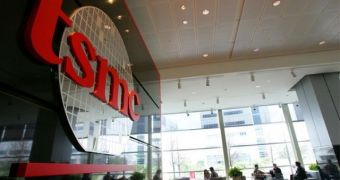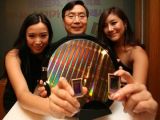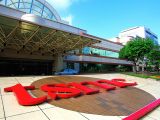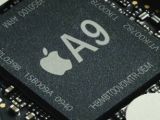Sources in the chip industry are saying that Taiwan Semiconductor Manufacturing Company still has one more hefty order to enjoy from Apple before Samsung scoops up everything.
The usual “industry sources” in Taiwan reportedly said “TSMC is expected to secure a combined 40-50% of Apple's A9 processor orders for next-generation iPad and iPhone devices,” and that the foundry is believed to have secured “the entire A9 chip orders for use in Apple's next iPad devices.”
However, Samsung still has the advantage, having signed for “the majority of Apple's iPhone chip orders for 2015,” the sources said. If history is any indication, the A9 will power an incrementally upgraded iPhone 6, and a new generation of iPads that may or may not see a redesign.
Luring Apple with low prices
Samsung’s ability to retain Apple as a partner, amidst a widely publicized legal spat, is said to be rooted in its lower prices for the 14nm FinFET process for making the A-series application processors. It offers Apple similar quotes for its 20nm technology, according to the same industry people.
TSMC, for its part, will kick off production on a 16nm FinFET process “for the next-generation iPhone” starting this December, and “will still play a part in the supply chain for iPhones in 2015,” the sources noted. The foundry is known to have won the bulk (if not all) of orders for iPhone 6.
Samsung already won 2016
Roughly two weeks ago, reports out of South Korea said that Apple had designated Samsung as the primary supplier of A-series chips for 2016 (around the time the iPhone 7 will theoretically hit the market).
The same reasons were cited for Samsung’s ability to persuade Apple: low quotes and high yield rates. The sources also said that Samsung’s alliance with GlobalFoundries enabled the Korean electronics manufacturer to “cut off capacity risk.” Around 80 of the orders for A10 chips will be awarded to Samsung, the report said.
Apple’s renewed relationship with Samsung stands as evidence that the iPhone maker will not reject lucrative business even after exchanging blows with its partners in court. The A-series chips are obviously too important for both parties to let patents get in the way.
There’s also the matter of Apple always needing more than one supplier of chips, because of the sheer number of iPhones and iPads being sold each year. Plus, the California company always needs a backup plan in case there’s another lawsuit.

 14 DAY TRIAL //
14 DAY TRIAL // 


